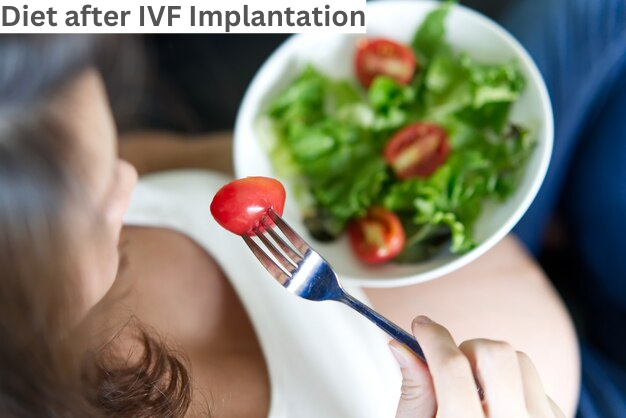Diet after IVF Implantation
IVF implantation is a crucial step in your fertility journey, and what you eat during this period can significantly impact your chances of success and your overall health. A well-balanced diet can support the implantation process, aid embryo development, and boost your energy levels.
At New World Fertility Centre in Delhi, we understand how important this phase is for you. Here’s a comprehensive guide to the diet you should follow after IVF implantation.
The Power of Nutrition
Your diet is not just about what you eat; it's about providing your body with the essential nutrients it needs to thrive. A healthy diet can significantly impact your fertility, the quality of your eggs or sperm, and the overall success of your IVF cycle. By nourishing your body, you're creating an optimal environment for conception and supporting a healthy pregnancy.
Key Nutrients for IVF Success
1. Folic Acid: This B-vitamin is crucial for preventing neural tube defects in developing embryos. It's found in leafy green vegetables, citrus fruits, and fortified cereals.
2. Iron: Adequate iron levels are essential for healthy blood cell production, which is vital for oxygen delivery to the developing embryo. Lean meats, beans, and fortified grains are good sources of iron.
3. Antioxidants: These powerful compounds protect your cells from damage caused by free radicals. They can be found in colorful fruits and vegetables like berries, spinach, and carrots.
4. Omega-3 Fatty Acids: These healthy fats support hormone balance and reduce inflammation. Fatty fish like salmon, mackerel, and sardines are excellent sources of omega-3s.
5. Protein: Protein is the building block of life, supporting the growth and repair of tissues. Lean meats, poultry, fish, eggs, beans, and nuts are all good sources of protein.
Diet Recommendations Before Embryo Transfer
Prioritize Whole Foods: Focus on consuming whole, unprocessed foods like fruits, vegetables, whole grains, lean proteins, and healthy fats.
Limit Processed Foods: Reduce your intake of processed foods, sugary drinks, and excessive caffeine, as these can negatively impact fertility.
Hydrate: Drink plenty of water throughout the day to keep your body hydrated and support optimal organ function.
Consider a Mediterranean-Style Diet: This diet, rich in fruits, vegetables, whole grains, and healthy fats, has been linked to improved fertility outcomes.
Diet Recommendations After Embryo Transfer
Maintain a Balanced Diet: Continue following a balanced diet, focusing on the key nutrients mentioned earlier.
Avoid Extreme Diets: Avoid drastic changes to your diet, as this can disrupt your body's delicate balance and potentially impact implantation.
Listen to Your Body: Pay attention to your body's signals and adjust your diet accordingly. If you experience any digestive issues, consult with your doctor or a registered dietitian.
Conclusion
By following these dietary guidelines and incorporating healthy lifestyle habits, you can increase your chances of a successful IVF cycle. Remember, every woman's body is unique, so it's important to work closely with your healthcare provider to create a personalized plan that suits your individual needs.
Frequently Asked Questions
1. Why is diet important after IVF implantation?
A balanced diet provides essential nutrients that support embryo implantation, maintain a healthy uterine lining, and promote overall well-being during early pregnancy.
2. What foods should I eat after IVF implantation?
Focus on nutrient-dense foods like:
- Leafy greens for folic acid
- Protein sources like eggs, chicken, and tofu
- Dairy products for calcium
- Iron-rich foods like spinach and lentils
- Omega-3 fatty acids from salmon, walnuts, and flaxseeds
3. Can I drink coffee or tea after IVF implantation?
Limit caffeine intake to less than 200 mg per day (about one cup of coffee). Opt for herbal teas instead, as they are caffeine-free and soothing.
4. Are there any foods I should avoid?
Yes, avoid:
- Raw or undercooked meat and fish
- Unpasteurized dairy products
- Processed and junk foods
- Soft drinks and sugary snacks
- Excessively spicy or salty foods
5. How much water should I drink daily?
Drink at least 8-10 glasses of water daily to stay hydrated and improve blood circulation, which supports implantation. You can also include fresh fruit juices and coconut water.

 Nov-16-2024
Nov-16-2024